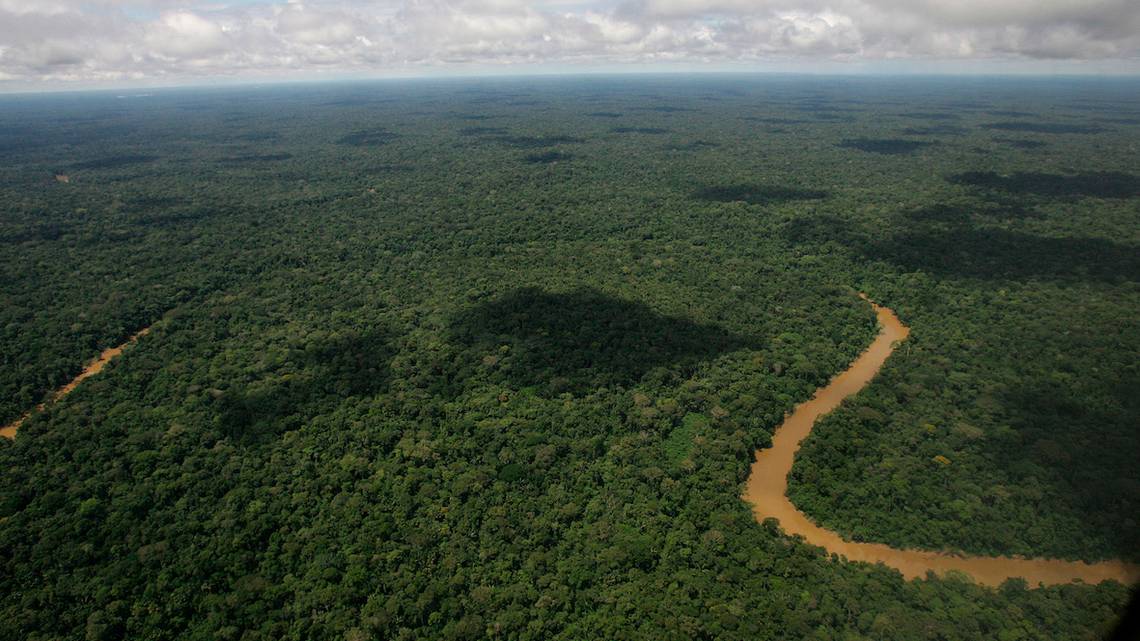 FILE - In this May 17, 2007, file photo, An aerial view of the Yasuni National Park, in Ecuador’s northeastern jungle. Ecuador’s government has issued an environmental permit, May 22, 2014, for oil drilling in the pristine Amazon reserve that President Rafael Correa initially offered to exempt from exploration if rich countries would pay his government. (AP Photo/Dolores Ochoa, File) DOLORES OCHOA ASSOCIATED PRESS
FILE - In this May 17, 2007, file photo, An aerial view of the Yasuni National Park, in Ecuador’s northeastern jungle. Ecuador’s government has issued an environmental permit, May 22, 2014, for oil drilling in the pristine Amazon reserve that President Rafael Correa initially offered to exempt from exploration if rich countries would pay his government. (AP Photo/Dolores Ochoa, File) DOLORES OCHOA ASSOCIATED PRESSThe vote is also a significant blow to President Guillermo Lasso, who has supported oil drilling efforts, noting that its revenue is important to the country's economy. Petroecuador produces nearly 60,000 barrels a day in the Yasuni National Park, and Block 43 alone contributes $1.2 billion to the country's annual federal budget. The vote also marks a significant step toward safeguarding a region that's home to several indigenous groups, including the Tagaeri and Taromenani, who live in voluntary isolation, and is a hotspot of biodiversity.
The United Nations Educational, Scientific and Cultural Organization (UNESCO) designated the Yasuni National Park and nearby areas a world biosphere reserve in 1989. The area encompasses about 2.5 million acres and includes 610 bird species, 139 amphibian species and 121 reptile species. At least three are endemic. "Ecuadorians have come together for this cause to provide a life opportunity for our Indigenous brothers and sisters and also to show the entire world, amidst these challenging times of climate change, that we stand in support of the rainforest," Nemo Guiquita, a leader of the Waorani tribe, said in a phone interview with The Associated Press. The vote also only applies to a section of the Amazon region. Oil production continues in other sections of the Yasuni National Park and other indigenous territories.